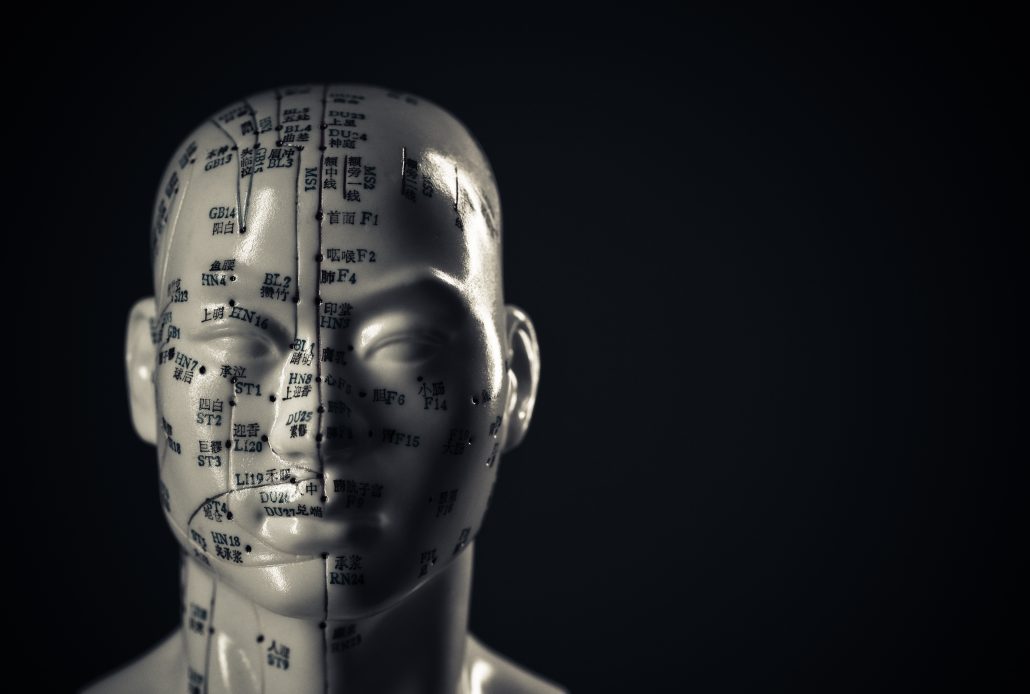by Justin Mckibben | Jan 25, 2018 | Acupuncture, Addiction Medicine, Addiction Treatment, Anxiety Disorder, Holistic Treatment

To put it simply, acupuncture is a form of alternative medicine in which thin needles are inserted into the body. This practice is a key component of traditional Chinese medicine, and the most widespread method of acupuncture in the United States derives from traditional Chinese medicine. Acupuncture therapy has been used to help heal and promote wellness for over 2,000 years.
Modern medicine explains the benefits of acupuncture using neuroscience. Traditional Chinese medicine focuses on the balance and flow of energy. Western practitioners tend to identify acupuncture points as places where stimulation to nerves, muscles, and connective tissue increases blood flow and activates the body’s natural endorphins. There are critics who say many studies on acupuncture are hard to prove because of the nature of the treatment versus control groups. Some would say any improvements may merely by placebo effects. However, many have experienced benefits from trying this method of treatment as part of personalized addiction recovery programs.
It is typical to use acupuncture for pain relief, although it can help with a wide range of other conditions as well. Generally, acupuncture is used in combination with other forms of treatment and has been known to be an effective addition to holistic addiction treatment. In 1997, the U.S. National Institute of Health (NIH) publicized acupuncture’s safety and efficacy for helping treat various conditions.
Relapse and Craving Prevention
One acupuncture technique applies small needles called “seeds” to the ear. A large study examining three auricular acupuncture protocols such as this looked at relapse prevention in drug users. This study concluded that all three protocols were associated with reductions in drug use over time.
In another study examining acupunctures impact on relapse prevention, an 8-week randomized study of 32 subjects compared two groups:
- One group was given acupuncture treatment with two prescription medications used for craving reduction
- The other received a placebo for cocaine addicts on methadone maintenance therapy
Half of the subjects in the test dropped out, so the results were not so concrete. However, almost 90% of those who completed the treatment achieved abstinence by the end of the study. The patients who completed the trial and achieved abstinence reported:
- Diminished craving
- Significantly improved mood
Over the years there have been hundreds of clinical studies on the benefits of acupuncture. According to the UC San Diego Center for Integrative Medicine, some studies claim that it can successfully help treat:
Although again, these treatments can often include medications and other forms of therapy.
Opiate Addiction and Acupuncture
The mesolimbic dopamine system originates in the ventral tegmental area (VTA) and projects to regions that include:
- Nucleus accumbens
- Prefrontal cortex
Expert believe these areas play a pivotal role in the development of opiate addiction.
Opioid abuse causes changes in the levels of dopamine in the brain. These reactions are typically associated with feelings of pleasure and well-being. This positive association helps drive the development of opiate abuse. So when someone discontinued opioid use, it reduces dopamine outflow in the nucleus accumbens. This is what creates opioid withdrawal.
Many studies in animals and humans have demonstrated that acupuncture causes multiple biological responses. The best-known mechanism is via endogenous opiates and their receptors.
In 1993, Han and Zhang reported the effectiveness of EA on morphine abstinence syndrome in a rat experimental model. The authors found that acupuncture point 100 Hz EA produced a statistically significant suppression of symptoms such as:
- Wet shakes
- Teeth chattering
- Escape attempts
- Weight loss
They also discovered acupuncture point 2 Hz EA produced a mild but significant suppression in:
- Escape attempts
- Wet shakes
These results suggest that 100 Hz EA was far more effective than 2 Hz EA in suppressing drug withdrawal syndrome. Further studies suggested that EA suppresses opiate withdrawal syndrome by activating κ opioid receptors and dynorphin release.
In short, there are researchers who believe that acupuncture is an effective method of therapy for helping treat those recovering from opioid addiction. Again, it may not be a good enough treatment on its own, but it can have an impact on cravings and other stressors in the body that help prevent relapse. So whether you believe in balancing the flow of energy in the body, or just pinpointing the nerves, acupuncture might be one way to enhance your recovery program.
Palm Healthcare Company offers acupuncture therapy as one of the many holistic treatment options to help each individual customize their own recovery plan. Acupuncture provides another opportunity to cultivate a state of physical and mental wellness in addiction recovery. Everyone struggling deserves a chance to be as healthy and happy as possible while overcoming drugs or alcohol. If you or someone you love is struggling, please call toll-free now.
CALL NOW 1-888-922-5398
by staff | Aug 24, 2017 | Addiction Treatment, Depression, Detox, Dual Diagnosis, Mental Health, Mood Disorders, Outpatient Treatment

Holistic methods of drug and alcohol addiction treatment are so effective because they are designed to heal all the unique aspects of an individual’s life. This style of comprehensive care delivers empowering and personalized recovery strategies to help each person find their way to a lasting transformation. Holistic addiction treatment doesn’t just save a life; it helps people to discover a new quality of life in recovery.
Part of creating a customized plan of recovery means making a complete appraisal of the individual’s needs and how best to serve them in a healthy and productive environment. Part of the initial assessment includes what some refer to as the Addiction Severity Index (ASI).
Every program may not use the term Addiction Severity Index directly. However, an intake assessment is always a critical step toward a comprehensive treatment. So what is the ASI and why does it matter?
What is the Addiction Severity Index?
The ASI is a semi-structured interview with an individual seeking care for issues with substance abuse. The interview is designed to address seven potential problem areas relevant to substance use disorder in potential patients, including:
-
Medical status
-
Employment and support
-
Drug use
-
Alcohol use
-
Legal status
-
Family/social status
-
Psychiatric status
The input given by the individual is important because it helps providers determine the best way to engage in safe and effective treatment. All information gathered for the Addiction Severity Index is treated as confidential.
In each of the 7 areas, the individual will be asked to answer questions based on a 1-to-5 scale system. The individual will be asked how bothered they are by problems pertaining to each area. They will then be asked how important treatment is for them in those areas. The scale is:
1- Not at all
2- Slightly
3- Moderately
4- Considerably
5- Extremely
Of course each individual has the right to refuse to answer any question, especially if a topic is:
-
Considered too personal
-
Uncomfortable to the patient
-
Too painful/traumatic
If this is the case the individual should be instructed not to answer. While the individual should be made aware of the benefits of answering as many questions as they can in order to prepare a more comprehensive treatment plan, they should also be allowed to avoid unnecessary distress.
Ultimately, the Addiction Severity Index is typically used as a standard assessment tool for evaluating substance use disorder and determining treatment options. Having a higher score on the ASI can be an indication of a greater need for treatment in the listed areas.
ASI-Lite
According to the World Health Organization (WHO) the Addiction Severity Index, Lite version, also known as ASI-Lite, is a shortened version of the ASI. In other words:
- A typical ASI gauges problems within the previous 30 days and calculates a lifetime worth of information about problem behaviors.
- ASI-Lite contains 22 fewer questions than the ASI, and omits items relating to severity evaluations, and a family history grid.
The abridged version of the Addiction Severity Index is not an extremely uncommon method. It simply utilizes a portion of the data to outline treatment options.
Why Does it Matter?
While not everyone may be familiar with the term Addiction Severity Index, it is easy to guess as to why its important. When dealing with such a complex and intimate issue as substance use disorder the more information you have to build a foundation the better. This offers more potential to address every part of the problem. With a holistic addiction treatment program there is typically an intake process that helps clinicians and medical staff best understand the individual’s needs.
If the individual has struggled with legal, professional and/or financial issues, their recovery plan can be more focused toward how to overcome these adversities.
If they are dealing with a medical issue while trying to repair damage done to their personal and familial relationships they can build their plan around coping with these obstacles.
A complete picture like the Addiction Severity Index can be crucial when addressing dual diagnosis patients. In order to effectively address someone who may be struggling with a mental health disorder, such as clinical depression, while also dealing with addiction both co-occurring disorders must be simultaneously treated. If someone ignores one to focus on the other it frequently instigates a relapse of the untreated issue.
The point of evaluating the Addiction Severity Index and using holistic addiction treatment is to heal all parts of the person’s life; not just the addiction.
Palm Healthcare Company is proud to have some of the most trusted holistic drug and alcohol treatment programs in South Florida. Our innovative and personalized approach helps create lasting healing and comprehensive transformation. If you or someone you love is struggling with substance abuse or addiction, please call toll-free now. We want to help.
CALL NOW 1-888-922-5398



